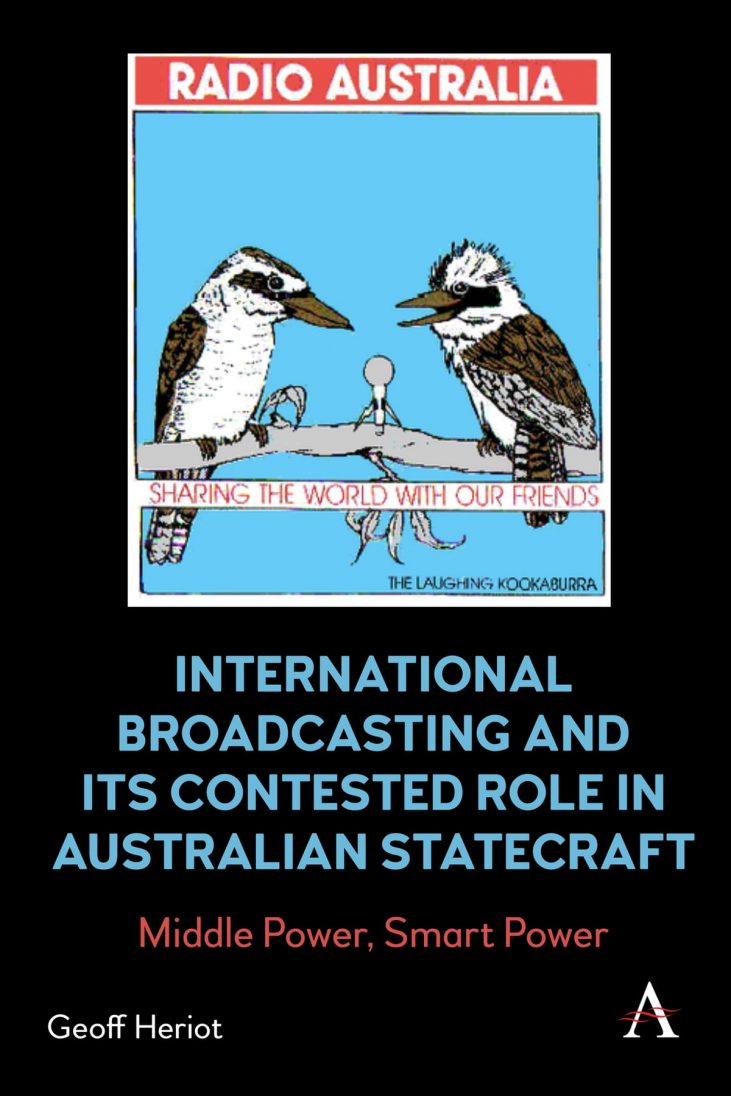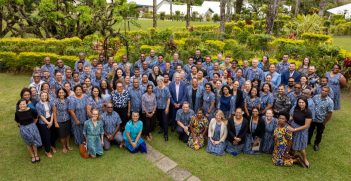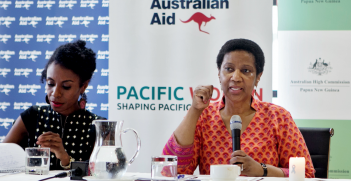Book Review: International Broadcasting and its Contested Role in Australian Statecraft

As a middle power in an increasingly volatile and contested region, Geoff Heriot argues that Australian Governments need to be more strategic about their approach to international broadcasting. This is if they are to effectively tackle contemporary diplomatic and security challenges.
Geoff Heriot is a veteran of Australian journalism, and his recent book covers Australia’s late 20th century international broadcasting efforts and the role of Radio Australia in Australia’s statecraft. His is a timely and important intervention, for in bringing light to this aspect of the nation’s media history, Heriot also speaks deftly to the pressing security concerns facing Australia today. At a time when the importance of the Indo-Pacific region to Australia’s security is becoming increasingly apparent, Heriot urges Australian governments to recognise the opportunities inherent in the discursive power of its international broadcasting service.
Throughout his well-argued and persuasive work, based on what he describes as a “late career” doctoral project, Heriot makes the case that international broadcasting offers Australia the opportunity to use its soft power more strategically in the region. He argues that international broadcasting possesses “discursive power” and this power provides Australia the chance to both model the nation’s democratic values and, perhaps more importantly, to ensure that “its strategic narrative forms part of the regional discourse.” However, he maintains that successive Australian governments have little understood the strategic purpose of, and opportunities offered by, its international broadcasting service. This has not only led to a cycle of investment and disinvestment in Radio Australia, but a lack of the long-term planning and focus that is required to ensure Australia possesses the kind of technically capable, trusted, and culturally sensitive broadcasting service required in times of crisis or need. As Heriot has claimed elsewhere, “The cardinal rule when seeking to project the values and interests of our imagined community, the democratic nation-state, is to play the long game and do so with constancy.”
Heriot’s book can be divided into two sections. The first is a theoretical exploration of the political purpose and efficiency of international broadcasting as an instrument of intercultural communication. From this, Heriot develops an analytical model that locates and evaluates the performance of international broadcasting in statecraft. The second section applies this model to the political history and contentious performance of Radio Australia during the latter half of the twentieth century. To this aim, Heriot has developed a list of what he believes are the six key functions of an international broadcaster like Radio Australia. These are: to engage audiences, even in hostile or difficult circumstances; to challenge foreign information cartels, including those of authoritarian states; to counter disinformation and inaccurate perceptions – a function of increasing relevance and value; to support peaceful region building; to strengthen regional architecture; and to respond to strategic contingencies. Heriot concludes that Radio Australia’s history in fulfilling these functions has been reasonably successful in the past but faces challenges moving forward.
Heriot is particularly critical of the ABC’s 2017 decision to cease shortwave radio broadcasts to the Pacific, ostensibly on the grounds that shortwave radio was a legacy of the more propaganda focussed efforts of international radio pursued by governments in the Cold War. Heriot argues forcefully that this short-sighted decision has left Australia with no viable transmission alternative that could guarantee a connection with audiences during periods of hostility or against the wishes of the target government. As he has observed, the ongoing importance of shortwave radio to communication in times of crisis was recently highlighted when the BBC chose to boost their long-distance shortwave transmissions after Russia blocked the BBC’s online coverage of the Russian-Ukraine War. Moreover, he argues that without shortwave radio capacity, Radio Australia’s ability to challenge disinformation has been substantially affected. It is hard to disagree with his comment that “what yesterday appeared to be ‘so Cold War’ has become ‘so now.’”
Throughout its historical sections, Heriot’s book paints a portrait of a service too often not prioritised or well-understood by governments, nor by the ABC itself. Heriot observes that the form of international outreach performed by Radio Australia was often perceived to be a function of foreign policy, rather than a core function of a national broadcaster. Internally, the brief of international broadcasting to promote Australia’s national interest was often misinterpreted among ABC staff as conflicting with the Corporation’s charter of independence. These tensions had an inevitable impact on the quality of Radio Australia’s broadcasting, which he notes could have often demonstrated more understanding of the cultural and political environment about which they were reporting.
Indeed, Heriot’s analytic framework centres audience engagement as a key factor in the discursive power of broadcasting. Strategic attempts to use broadcasting to influence the political discourse in a culturally diverse region can only be effective if they are sensitive to the beliefs and identity of the target audience. As Heriot describes it, “a critical determinant of the broadcaster’s performance is whether it can establish a sense of shared lifeworld with target audiences to predispose them to engage and accept principles or points of view compatible with those represented by the broadcaster.” Discursive power requires the establishment of a dialogue of cultures, a nuanced understanding of Australia’s image and goals in the region and, most importantly, a relationship of trust with the target audience. Heriot emphasises repeatedly that this trust is something that can only be built up over time and requires both a long-term commitment from the government and adequate investment in both staff and infrastructure.
Heriot’s work speaks to both historical matters and present-day concerns. In doing so, it has a lot of insight to offer to Australian historians as well as those interested in Australia’s contemporary security and diplomatic challenges.
This is a review of Geoff Heriot’s International Broadcasting and its Contested Role in Australian Statecraft, (Anthem Press, 2023). ISBN: 9781839985058
Dr Melanie Brand is a historian, researcher, and lecturer in Intelligence Studies at Macquarie University.
This review is published under a Creative Commons License and may be republished with attribution.





